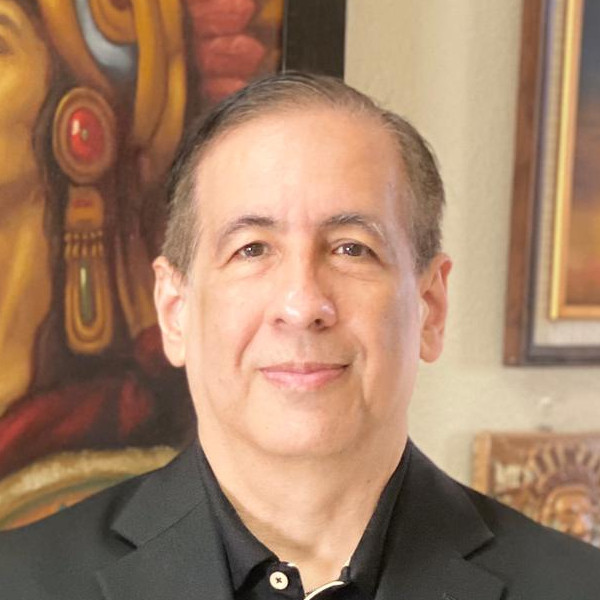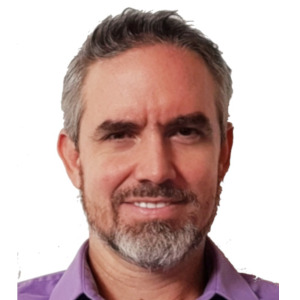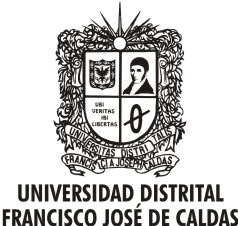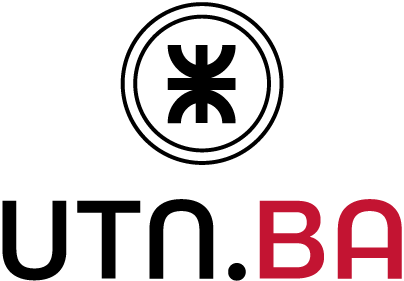
Fourth International Conference on Applied Informatics
28 to 30 October 2021
Universidad Tecnológica Nacional Facultad Regional Buenos Aires
Buenos Aires, Argentina ONLINE
Keynote Speakers for ICAI 2021

Jose A. Olivas
Doctor Olivas was born in 1964 in Lugo (Spain). He received his M.S. degree in Philosophy in 1990 (University of Santiago de Compostela, Spain), Master on Knowledge Engineering of the Department of Artificial Intelligence, Polytechnic University of Madrid in 1992, and his Ph.D. in Computer Science in 2000 (University of Castilla–La Mancha, Spain). In 2001 was Postdoc Visiting Scholar at Lotfi A. Zadeh’s (father of Fuzzy Logic) BISC (Berkeley Initiative in Soft Computing), University of California-Berkeley, USA. He keeps in touch with BISC and with the Artificial Intelligence Center of the SRI International of the Stanford University (Prof. Richard Waldinger). His current main research interests are in the field of Soft Computing for Information Retrieval, Data Analysis and Artificial Intelligence and Knowledge Engineering applications. He received the Environment Research Award 2002 from the Madrid Council (Spain) for his PhD. Thesis or the Best Paper Award of the Spanish Association for Artificial Intelligence (AEPIA) in 2015. Author of the book “Búsqueda eficaz de información en la Web” and more than 250 scientific contributions. “Honoris causa” Doctorate National University of La Plata, Buenos Aires, Argentina, 2020.
Keynote: Intelligent data analysis guided by Knowledge Engineering
Abstract: Nowadays it is very common to link Artificial Intelligence only to the (intelligent?) analysis of data, and this to the techniques of machine learning, most of them coming from statistics. But Artificial Intelligence is much more, something very different: providing computational systems with the ability to simulate intelligent human behavior, both in reasoning and in acting. On the other hand, we are witnessing the phenomenon of the 'deification' of data, when we know that they are very incomplete representations, mostly numerical, with noise, imprecision, uncertainty and increasingly, deliberately biased or false, usually not with the best intentions. This talk will address all these aspects and build bridges between 'correlation' and 'causation' through knowledge engineering, finally proposing the development of systems that rely on both intelligent data exploitation and knowledge about the phenomenon to be addressed.

Luis Rabelo
Dr. Luis Rabelo received the BS in Electro-Mechanical Engineer from
the Technological University of Panama in 1983, an MS in Electrical
Engineering from the Florida Institute of Technology in 1987
Master's, and a Doctorate (Ph.D.) in Engineering Management from the
University of Missouri. He was a Postdoc at the University of
Missouri in Nuclear Engineering. In addition, Dr. Rabelo received a
dual MS in Systems and Management from the Massachusetts Institute of
Technology.
Dr. Rabelo has worked for the Advanced Technology
Group (Goodrich) and Honeywell Laboratories. Dr. Rabelo was a NASA
Fellow from 2002 to 2005. He was a Research Project Manager at NASA
from 2009 to 2011. He is currently Professor in the Industrial
Engineering and Management Systems Department at UCF. Dr. Rabelo is
also the Undergraduate Coordinator/Associate Chair. He has written
more than 300 articles, a book in Artificial Intelligence, and an
upcoming book in Engineering Analytics (Taylor and Francis/CRC Press).
He has been the principal advisor for 39 Master's students and 31
PhDs. He received the Best Scientific Article Award of the Year 2004
from the Society of Automotive Engineers, received the distinction
"ONE NASA" in 2006, and other NASA awards for performance and
contributions in 2010 and 2011. He was the recipient of the Fulbright
Distinction in 2008. In November 2008, he received the honor of the
Technological University of Panama (UTP) of being the Distinguished
Alumni. In 2011, he was the Henaac Award Winner in Education. In 2013
and 2018, he received the Forest R. McFarland Award from the Society
of Automotive Engineering (SAE). Lately, he received the SAE Russell
S. Springer Award for his article on the modeling of space operations
systems in 2017.
Keynote: Artificial Intelligence and Simulation: Opportunities in Cybersecurity and Blockchain Design
Abstract: In this keynote, the speaker will introduce Artificial Intelligence and Simulation from his own life experiences starting in the 1980s and culminating with three International/US Patents used in Aviation/Aerospace in the late 1990’s and two distributed simulation systems with NASA and Defense. In addition, he will talk about recent developments of his research group in Cybersecurity Frameworks for more Robust Risk Management, the Design of Blockchain Systems (justification), and the combination of Big Data, Deep Learning, and Distributed Simulation. The Cybersecurity framework uses System Dynamics (a derivation of continuous simulation) and Discrete-Event simulation. On the other hand, the Blockchain justification uses the integration of agent-based simulation with deep learning. Big Data, Deep Learning, and Distributed Simulation were built to demonstrate the advantages of this unique integration.

Fernando Yepes-Calderon
Fernando Yepes-Calderon – Ph.D. was part of the soccer team that gained the professional soccer tournament in Colombia (1996). Then, he pursued a carrier in electronics engineering and graduated in 2002. He is the holder of three master's degrees in diverse fields of engineering applied to medicine and certified in Colombia (2007), France (2009), and Spain (2012). He obtained a Ph.D. degree in Biomedicine from Universidad de Barcelona in 2016. Fernando has become an expert in proposing methods, and his work covers several fields of application, including neurodevelopment, cancer, sports in medicine, medical imaging, and applied artificial intelligence.
Keynote: Science and regulations around controlling global warming. A desperate call to scientists
Abstract: Caring for the environment has been a priority concern after the establishment of the Kyoto protocol in 1997. Since then, the globe has warmed 0.86 degrees Celsius. According to the Intergovernmental Panel on Climate Change (IPCC) there is only 0.5 degrees of range between a sustainable future for the planet and one in which life would be unviable. The deterioration has already begun, but it would be latent from 2030. The need to join scientists in the fight against global warming is irrefutable. A high dose of innovation is required to think of a world that moves under clean and eco-efficient procedures, also individuals who generate and analyze robust data, as well as people capable of clearly disclosing achievements in environmental matters. This presentation is an invitation to work for the care of the planet.
Organized by
Sponsored by
2018 - 2026 All rights reserved





